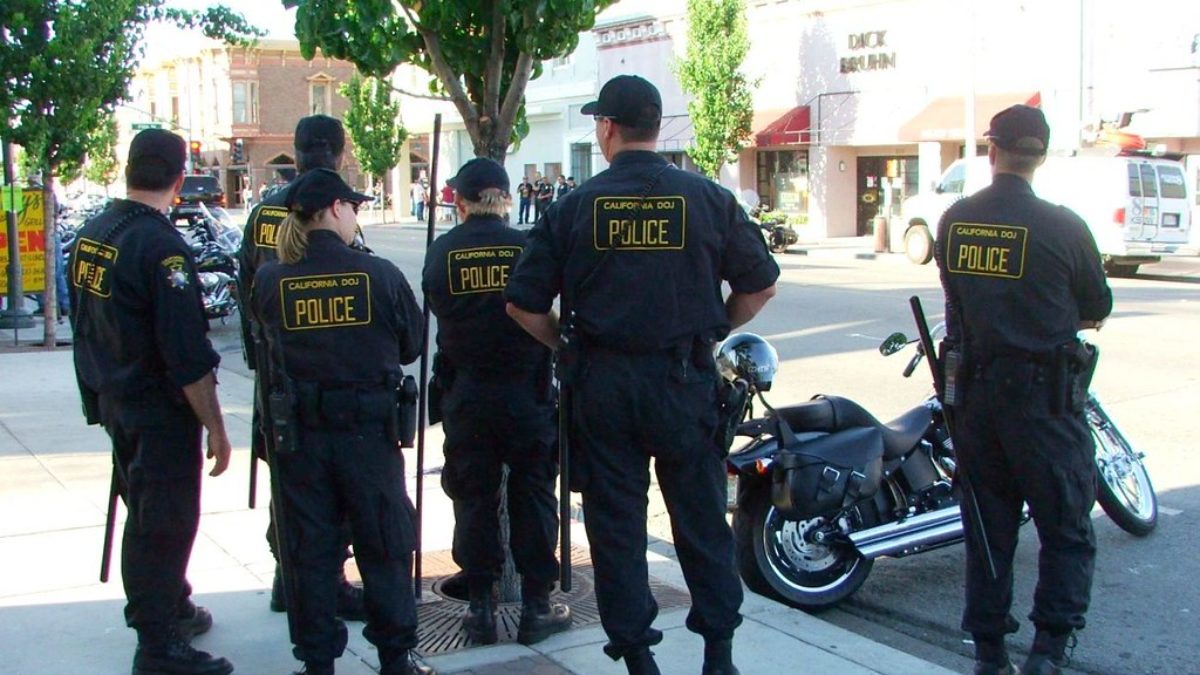On Tuesday, Department of Justice representatives informed a Senate committee of plans to gather a group of select attorneys to form a “Domestic Terror Unit” in light of the Jan. 6, 2021 attack, noting that its number of investigations of alleged domestic terrorists have more than doubled since the spring of 2020. While admitting “there is no single federal crime labeled ‘domestic terrorism,’” a DOJ official promised to invoke a “criminal code” that allows enhanced sentences for certain crimes listed as “terror offenses.”
There are many reasons to doubt the authenticity of the federal government’s efforts against this “persistent and evolving” threat, including its conveniently blurred definitions.
The National Defense and Authorization Act’s definition of “domestic terrorism” distinctly refers to “unlawful use or threat of force of violence in furtherance of ideological agendas” in the context of political or anti-government extremism. Most other common-sense definitions clearly denote violence as an essential feature. However, federal agents have a poor track record in their use of the label, not only in the case of parents angry at school boards, but most recently in relation to Jan. 6, 2021.
In July 2021, after pleading guilty to “obstruction of an official proceeding,” non-violent Jan. 6 defendant Paul Hodgkins, who had no prior criminal record, was given a heavy eight-month sentence. Judge Randolph Moss described him as one of many “terrorists” that day, baselessly lumping him in with those who committed actual violence.
In all his insufferable rantings about an “assault on democracy” and the rebellious “symbolism” of Hodgkins raising a Trump flag, Moss could not explain how his particular crime of roaming the Senate floor for 22 minutes had enabled violence. In fact, he plainly admitted that the punishment wasn’t based entirely on individual guilt, but on a perverse idea of “balanced” justice:
The court here had to consider both what I think are the extremely damaging events that occurred that day but also who Mr. Hodgkins is as an individual. And as I think is reflected by the sentencing I imposed, I tried to strike that balance.
This implies one may be considered a terrorist by virtue of being within geographical distance of what terrorists are doing if one’s political leanings are on a similar spectrum.
Despite the court’s claims, neither the prosecution nor the judge brought forth a sentencing enhancement based on the existing code of terror offenses mentioned Tuesday. Why? Because Hodgkins’ crime isn’t on it. It was terrorism because the court said it was, not by law.
More judicial malpractice occurred in the case of non-violent defendant Jacob Chansely, the infamous “Q shaman” who was held in solitary confinement for months while Judge Royce Lamberth repeatedly denied his release. In November, Chansely received an unbelievable 41-month sentence when he pleaded guilty to the same charge as Hodgkins.
While admitting Chansely committed no violent crime at the Capitol (in fact, he openly called for peace), the court cited a “need to deter others especially in cases of domestic terrorism.” By punishing a non-terrorist more harshly than necessary to “deter others,” our bloodthirsty DOJ showed a willingness to weaponize federal convictions that deplete a defendant’s civil rights just to make an example out of him.
In August, the government extended its wild accusations out of the courtrooms and into local police departments. Leading up to the anniversary of 9/11, the Department of Homeland Security issued an alert advising police and neighborhoods to be on the lookout for potential terror threats. Among them were “opposition to COVID measures,” or association with “conspiracy theories on perceived election fraud.”
Do you oppose certain COVID policies or hold a skeptical view of the 2020 election’s security but have no intent to respond violently or illegally? The DHS draws no line; to them, you may be a terrorist. Their language spreads beyond actions to include statements or beliefs that are inherently devoid of any call to action, violent or not. One could almost call it an indictment of “thought crime.”
Lastly, while the Jan. 6 Capitol attack obviously involved acts of political violence, it hasn’t been linked to any broader, organized threat to the country, raising more questions as to what exactly justifies a new Terror Unit in response.
In August, after hundreds of arrests and investigations, the FBI admitted to finding no hard evidence of an elaborate political plot on Jan. 6, a confession no one in the government has retracted since. The most concerning evidence of a plot may be the FBI’s own use of provocateurs, but it’s looking doubtful the FBI or DOJ will investigate itself.
When asked by the Senate committee if any Jan. 6 defendants have been charged with “insurrection,” DOJ representatives said they were unaware of any. That’s because the answer is no. Regardless, the feds continue to ramp up their already fanatical response to a problem they haven’t clearly defined.
Our self-serving ruling class hasn’t conducted itself responsibly or transparently in the wake of the Capitol attack, and we can expect this new development to be no different. While the Biden administration would have us believe that the aimless actions of a few foolish troublemakers represent the greatest authoritarian threat to the United States, its systematic purge of political opponents indicates otherwise.







